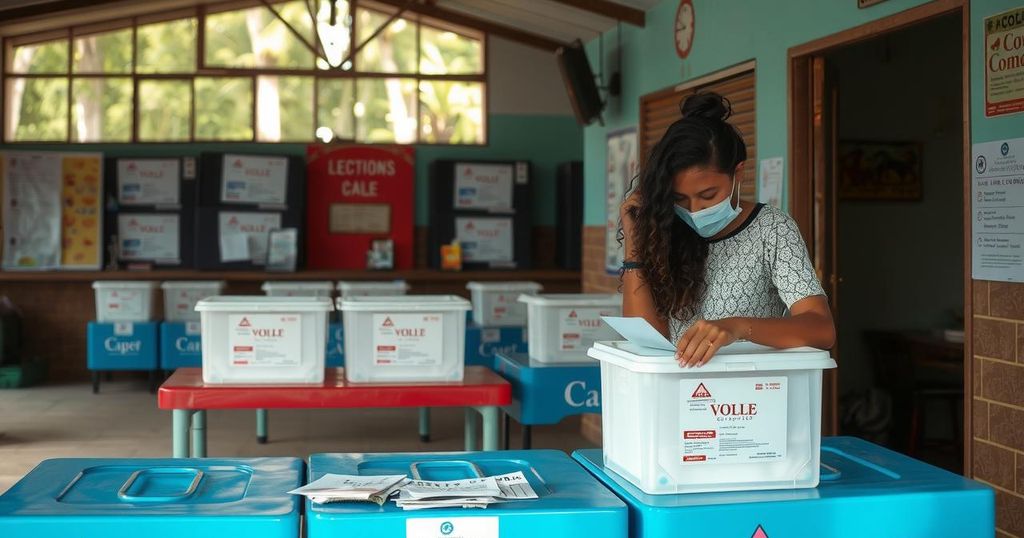World news
ABDALLAH SAMBI, AFRICA, AUSTRALIAN ASSOCIATED PRESS, AZALI ASSOUMANI, COMOROS, ELECTION FRAUD, GOVERNANCE, GOVERNMENT, HAMIDOU KARIHILA, HOPE OF THE COMOROS, INDIAN OCEAN, INDIAN OCEAN ARCHIPELAGO, JUWA, NO, NOUR EL - FATH, OPPOSITION, POLITICS, PRESIDENTIAL ELECTION, REUTERS, SUPREME COURT
Fatima Alavi
0 Comments
Comoros Votes for New Parliament Amid Political Controversy
Voters in Comoros are electing members for the 33-seat parliament, a year after contested presidential elections. Approximately 338,000 people are registered to vote as about 100 candidates compete. Accusations against President Assoumani include authoritarian practices and plans to establish a dynastic succession. The political atmosphere is polarized, with some opposition factions advocating for a boycott of the polls while others engage in the electoral process.
Voters in the Comoros are participating in elections for a 33-seat parliament amidst a backdrop of political controversy. This election takes place a year after President Azali Assoumani’s re-election, which the opposition claims was marred by significant irregularities. Early polling stations opened on Sunday, with approximately 338,000 registered voters. The last instance of parliamentary elections occurred in January 2020, and nearly 100 candidates have been approved to contest this current election by the nation’s Supreme Court.
President Assoumani, who has been in power since 1999 following a coup, faces allegations of authoritarianism, with opponents suggesting he is positioning his eldest son, Nour El-Fath, as his successor for the term concluding in 2029. In 2024, Assoumani granted his son extensive powers, including the coordination of all government affairs. Some opposition parties, notably Juwa led by former President Ahmed Abdallah Sambi, who is serving a life sentence, have initiated calls for a boycott of the elections, while other factions remain committed to participating.
Hamidou Karihila, a candidate from the opposition party Hope of the Comoros, commented on the situation, emphasizing, “The Azali regime is weakened … by participating in these elections we are contributing to further exposing the flaws in its system and accelerating its inevitable fall.” Results from the elections are anticipated to be released by Friday.
The Comoros, an archipelago located in the Indian Ocean, has experienced a tumultuous political environment characterized by coups and allegations of electoral improprieties. President Azali Assoumani, who has held power for over two decades, is seen by many as fostering an authoritarian regime. His leadership style and the recent empowerment of his eldest son within government affairs have sparked concerns about the continuity of power within a single family. The opposition’s call for boycotting the elections reflects deep-seated divisions and discontent with the current political status quo, ultimately seeking reforms and transparency in governance.
The elections in the Comoros represent a critical moment for the nation, where voters face a choice amidst an atmosphere of political strife and accusations of authoritarianism. The contrasting decisions of opposition parties regarding participation indicate a significant divide within the political landscape. Observers await the election results, which may further delineate the future trajectory of this small island nation and its governance under President Assoumani.
Original Source: www.canberratimes.com.au




Post Comment